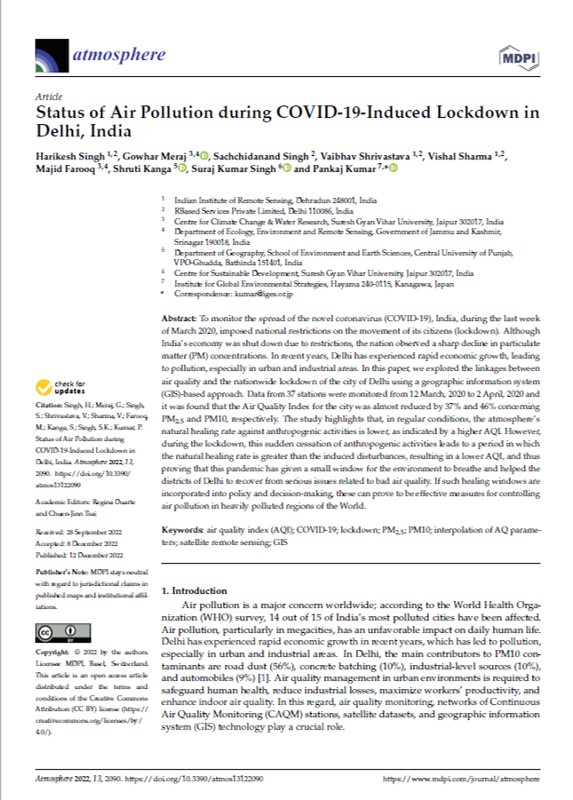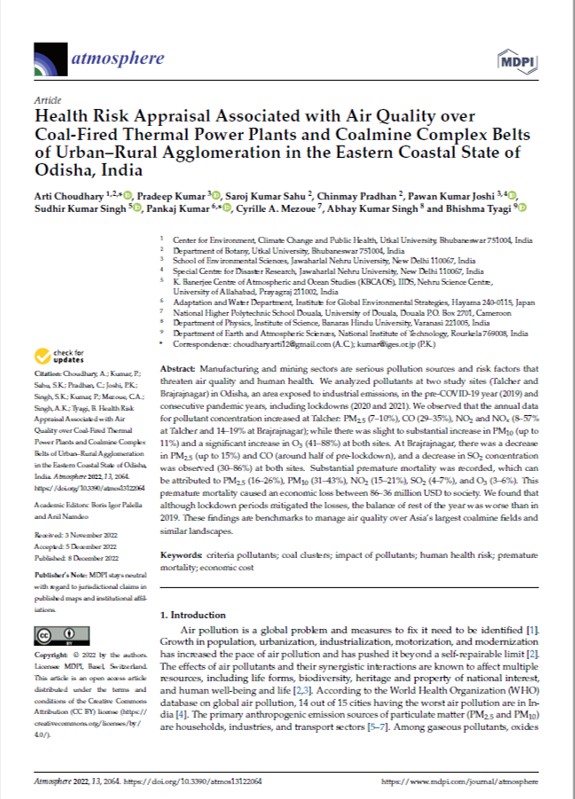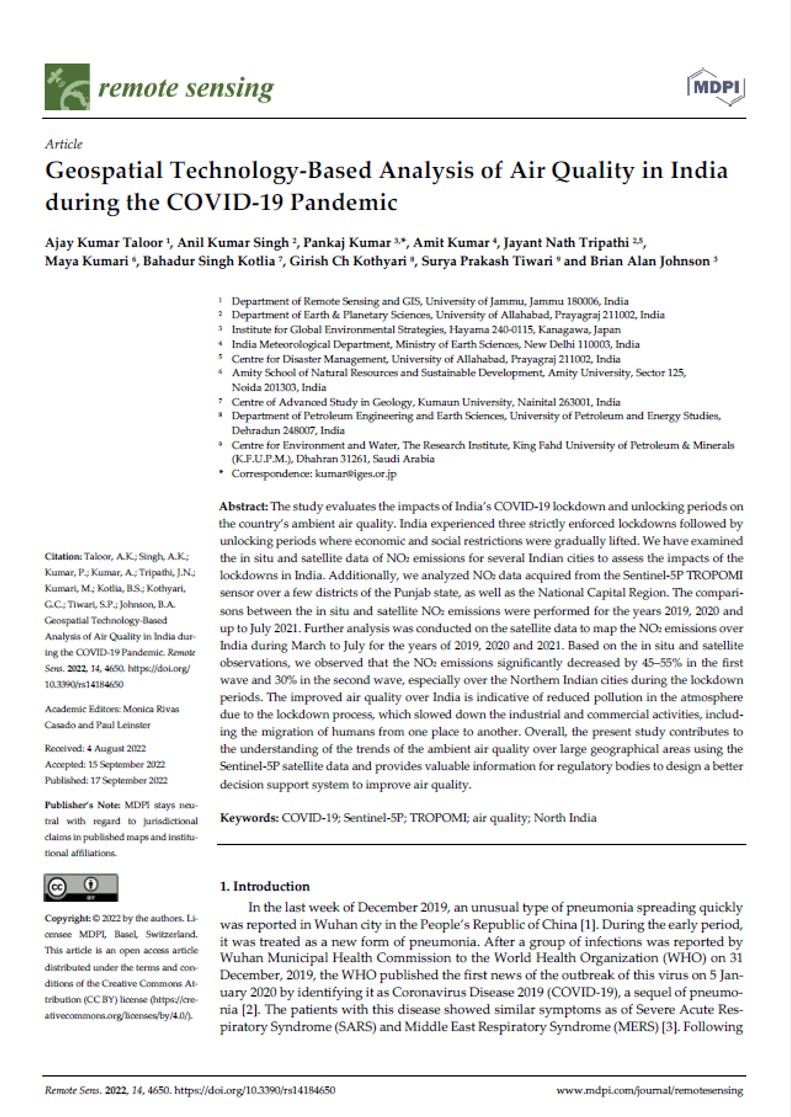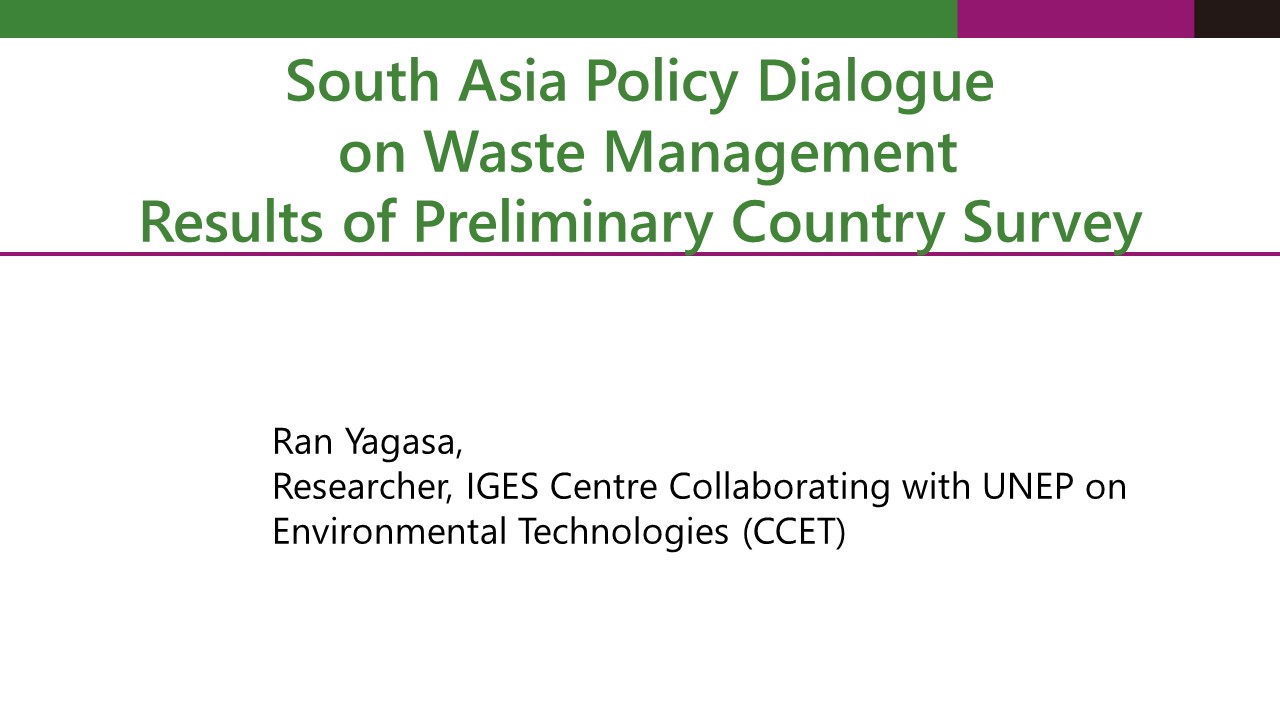In Atmosphere
To monitor the spread of the novel coronavirus (COVID-19), India, during the last week of March 2020, imposed national restrictions on the movement of its citizens (lockdown). Although India’s economy was shut down due to restrictions, the nation observed a sharp decline in particulate matter (PM) concentrations. In recent years, Delhi has...





